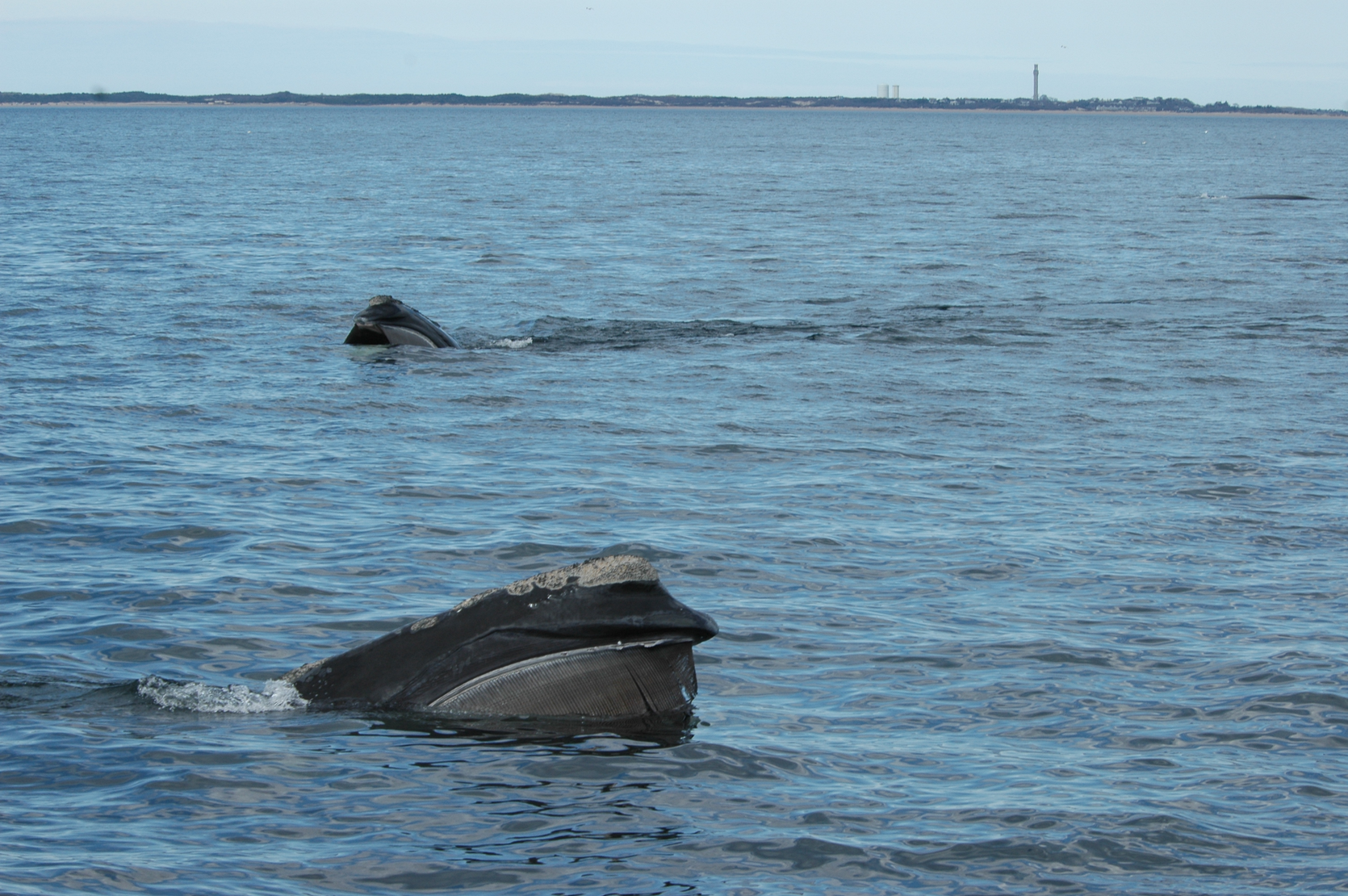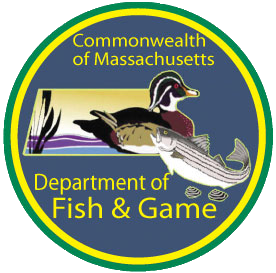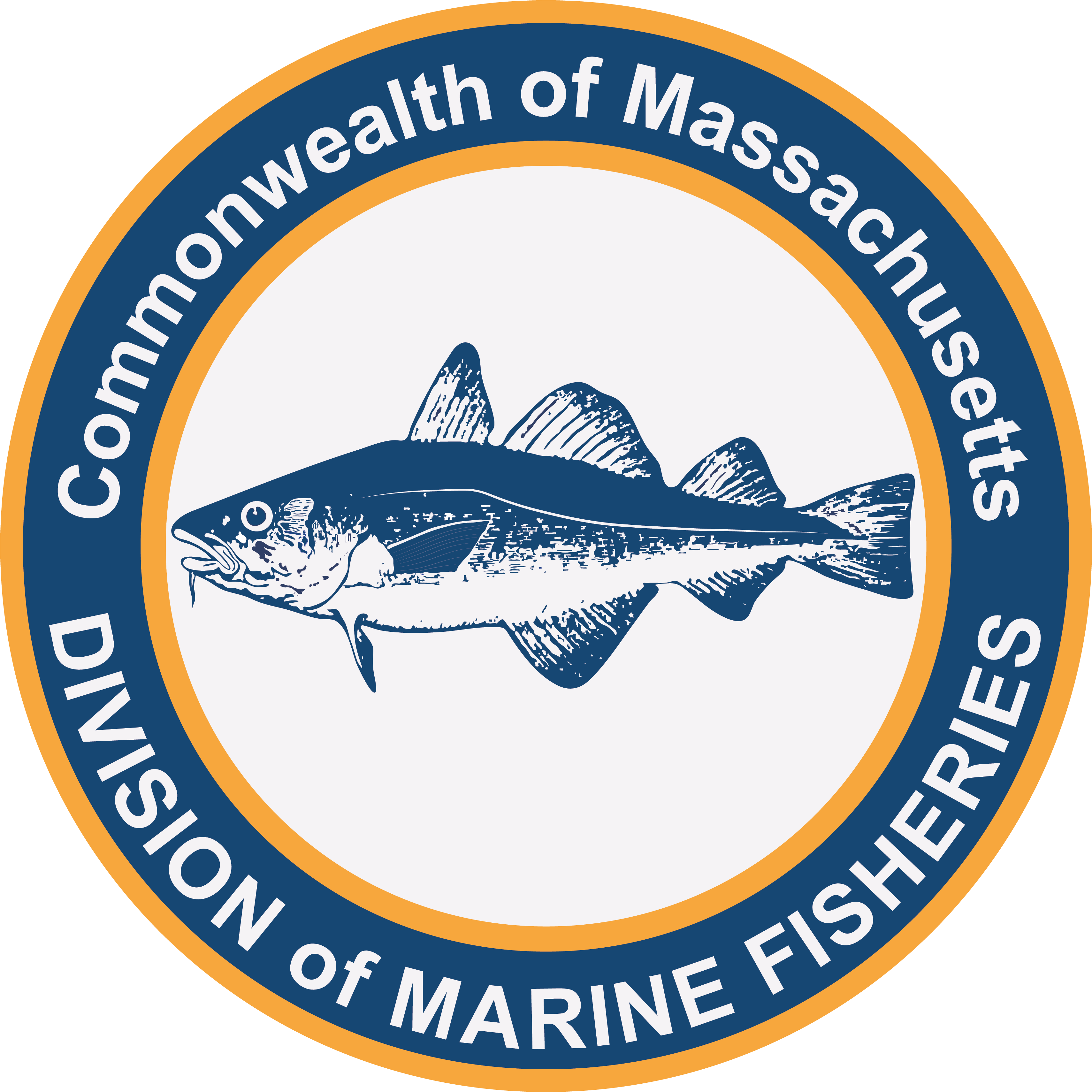- Executive Office of Energy and Environmental Affairs
- Department of Fish and Game
- Division of Marine Fisheries
Media Contact
Maria Hardiman, Communications Director

BOSTON — The Massachusetts Department of Fish and Game’s Division of Marine Fisheries (DMF) will receive more than $4.6 million from a congressional appropriation through the Atlantic States Marine Fisheries Commission to enhance the division’s nation-leading conservation program for the endangered North Atlantic right whale. DMF will use this funding and an additional $475,000 grant from the National Fish and Wildlife Foundation (NFWF), to bolster development of innovative fishing gear technologies, increase ongoing research and monitoring, and provide fishing gear to lobster industry participants to reduce harm to the right whales. As part of a 5-year program, DMF anticipates receiving more than $23 million from NOAA Fisheries between now and the end of 2028 subject to annual Congressional appropriations.
“We have a special responsibility to help these endangered animals, and to promote innovative measures to support whale recovery and Massachusetts' important lobster industry,” said Energy and Environmental Affairs Secretary Rebecca Tepper. “Massachusetts near-shore waters annually host up to 80 percent of the total population of North Atlantic right whales in late winter and early spring, as the whales migrate north and feed in the nutrient-rich waters of Cape Cod Bay and Massachusetts Bay. These funds are particularly beneficial to the small boat fishers who contribute so much to our economy, food security, and heritage of Massachusetts coastal communities.”
“Massachusetts has long been a leader in conservation efforts for North Atlantic right whale, as evidenced by the ‘Partner in the Spotlight Award’ given to the Division of Marine Fisheries by NOAA Fisheries earlier this year for right whale conservation efforts,” said Department of Fish and Game Commissioner Tom O’Shea. “We are very grateful to Massachusetts lobster fishers who have sacrificed and worked with us in implementing a closed season, the use of modified rope, and other important measures to protect right whales.”
“This funding will provide critical assistance to the Commonwealth’s dual efforts to both protect the North Atlantic Right Whale and help innovate our fishing industry to develop safer fishing methods,” said Representative Josh S. Cutler (D-Duxbury). “The Commonwealth needs to be a partner with the fishing industry to tackle this issue and I applaud the Division of Marine Fisheries for their ongoing efforts.”
"Massachusetts has a unique and important role to play in the stewardship of the right whale, and we have been working to meet that responsibility on many fronts," said Senator Bruce Tarr. Yet doing so comes with some heavy burdens, and these funds and the partnership they represent in working to protect this species."
Under the U.S. Consolidated Appropriations Act of 2023, Congress appropriated $25 million to nine Atlantic Coast states from Maine to Maryland to support right whale recovery. Massachusetts Division of Marine Fisheries has put together a spending plan for 2024, allocating $2.8 million for right whale research and monitoring; $1.1 million for on-demand gear research; and $472,000 for lobster gear to be used by lobster fishers to reduce entanglement risks. The $475,000 NFWF grant will provide a detailed picture of the economic costs and benefits of on-demand gear systems for which testing has been undertaken.
The funding will support Massachusetts’ lobster industry and other trap fisheries as they adapt to existing and new regulations that will be developed by NOAA Fisheries and DMF by December 31, 2028, to protect the federally endangered North Atlantic right whale and comply with the federal Marine Mammal Protection Act of 1972 and the Endangered Species Act of 1973.
DMF’s program will help researchers better understand the seasonal distribution and density of right whales in state and adjacent federal waters, as well as the seasonal distribution of fixed fishing gear in these areas. It will enable fishery managers to reduce entanglement risk to right whales based on robust distribution data. This program will reduce the potential for injury to right whales through development, promotion, and outreach regarding “weak rope,” “weak inserts,” and on-demand fishing technology. Finally, it will improve understanding of capabilities, limitations, socioeconomic factors, and opportunities for on-demand fishing.
DMF will increase the ranks of its staff focused on North Atlantic Right Whale conservation from 1 to 7 to implement a broadscale research, monitoring, and outreach program. This will include an on demand fishing research program focused on solving gear marking, gear conflict, and efficiency issues. The Division will implement a coastwide archival passive acoustic monitoring network and deploy three passive acoustic listening buoys. Working with the Center for Coastal Studies, DMF will enhance its long-established right whale aerial surveillance program, expanding from 180 to 225 hours of flight time annually. Collectively, the enhanced acoustic and aerial surveillance programs will dramatically enhance DMF’s understanding of right whale seasonal distribution in the coastal waters of the Commonwealth. DMF will also be expanding outreach to the commercial fishing industry on methods to reduce entanglement injury risk to right whales. This work will include distribution of weak rope and marking supplies to fishers and the initiation of an on-demand fishing grants program to encourage researchers to address key questions and allow fishers to purchase on-demand fishing gear.
Massachusetts has long been a leader in right whale protection efforts and has the most stringent state regulations to protect right whales in the country. DMF regulates both fishing activity and vessel activity to protect right whales, the official state marine mammal of Massachusetts. DMF limits participation in commercial fixed gear fisheries that may entangle right whales; requires fixed gear be removed from state waters at times and in places when right whales are known to aggregate; and requires fixed gear be modified at other times of the year to reduce the risk of injury or mortality, should a large whale become entangled. DMF also seasonally regulates small vessel speed in Cape Cod Bay to reduce interactions with right whales. For more information on DMF’s efforts to protect right whales check out our webpage.
###

